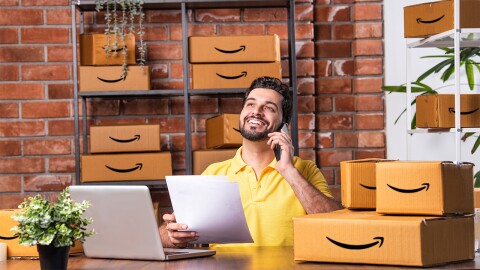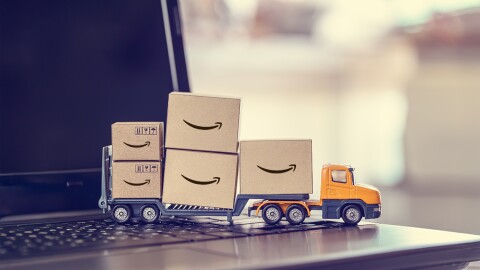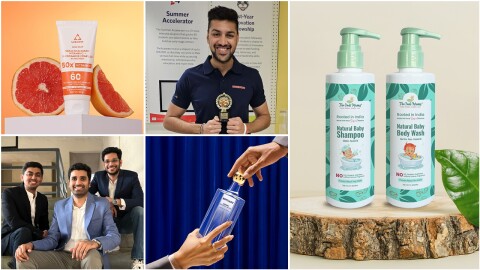Expect multiple Indian brands to win big in international markets over the next 5-7 years. That’s the word coming in from Vinay Singh, Co-founder & Partner of early-stage venture capital firm Fireside Ventures, ahead of the finale of Amazon Global Selling Propel Accelerator Season 2 (Fireside has partnered with Amazon Global Selling Propel Accelerator for seasons 1 and 2). Singh shares insights on how Indian brands can build differentiated and sustainable D2C ventures while explaining Fireside’s philosophy when it comes to investing in startups. He also shares his expectations from Propel Season 2 Graduation Day (September 7), where 15 startups will pitch to investors and the top 3 stand a chance to win $100,000 in equity-free grant. Edited excerpts.
3 ways in which D2C brands can create a distinctive business:
The first one is consumer intimacy. It is important to see brands scale and still maintain intimacy with their consumers like they did on day 1. They need to use technology to help them scale. The key is translating insights and consumer observations into fast innovation cycles.
Consumers are evolving quickly, business models are changing rapidly, and trends are emerging at a fast pace. For D2C brands to stay on top of this, they need to have a fail-fast approach.
The third piece is having a data-driven DNA to make decisions and scale quickly.
Building brand loyalty:
There’s a paucity of choice in India, consumers are bound by what is available. They have a very limited set of choices that they have to choose from. What's new is that new age brands are unlocking this. They are able to delight consumers by giving them products, brand stories, and propositions that they want but probably don’t have access to. Therefore, for every brand, it’s important to understand their consumer: both the relationship of the consumer to the category, as well as their habits and attitudes. Brands can strengthen their relationship with the consumer via communication and the media they consume, brands also need to find that sweet spot where they can delight the consumer with a differentiated product & tell a compelling story. Rather than trying to please 100 million people by doing an okay job, it is fine to go ahead and delight 2 million people. I think that with those 2 million people—if the brand can get consumed 4 or 5 times a year at $10 a pop—it could be a very compelling $100M business.
Building a marathoner’s mindset:
The Amazon Global Selling Propel Accelerator program enables and encourages more entrepreneurs to dream big. It's not only about looking at smaller niches to tap into in one’s country, but think about this globally. I think that's the key to stoking innovation in the country. Today’s entrepreneurs are thinking bigger and bolder. Every entrepreneur, like every human being, has his or her own strengths and weaknesses. Programs like Propel help with levelling the playing field. There’s a yin and yang where, let's say, this strong founder who understands consumers, products and content is having difficulties with warehousing, logistics, market access, etc. That’s where Propel can add a lot of value and validate some of their hypotheses with early experiments. That’s the value an accelerator can provide. The founder needs to ask questions like: What hypothesis do I want to validate from my time at the accelerator? For example, if they want to validate demand in a specific country and if the accelerator can provide that value, it's a win-win both for the accelerator and the entrepreneur. Given the challenges of cross-border e-commerce, Propel is solving a bunch of critical challenges for entrepreneurs. The time has come for Indian brands to win the global markets. We will see multiple Indian brands winning in international markets over the next 5-7 years.
Factors that Fireside Ventures considers before investing in a startup:
So there are two major factors here, what we like to call English and Math. The English part of it is this: who are the consumers and what are they currently consuming? When you can answer this question, the next thing you should ask yourself is: what product differentiation can you bring to the table? When you have a strong functional benefit that can delight these consumers, you need to clearly articulate these benefits as compelling proposition. The Maths of it is figuring out what price you can sell your products to the consumers. You need to have a sweet price point that encourages your TG to trade up. And at that pricing, what kind of margins do you make? That balance between price and margin is very critical. I think the point of all of this coming together is consumer love as evidenced by the five R's in business: reviews, ratings, retention, referrals, and (low) returns. I have to give credit to Vishal Gupta of Gynoveda for teaching us this framework. These are critical factors that we look at when we are evaluating an opportunity.
Expectations from Season 2 finalists:
I think the expectations remain the same as last season. Have you really thought about the target audience, instead of trying to appeal to everyone? Who is this consumer you're servicing, and why should s/he care about the stories you are trying to tell a brand? The other piece is stoking repeats and referrals based on clear functional benefits. How have you been able to delight the consumer in every step of their journey—right from awareness, to product discovery, to trial, and even repeat orders? Today, consumers are more aware. They ask brands why they should consume what they offer. Entrepreneurs are waking up to that challenge and also addressing questions around conscious consumption like water and plastic usage.
I’m expecting clear articulation of products offered by the brands. They need to demonstrate consumer love and state their purpose of fulfilling consumer requirements. That would be a heady mix to create compelling brands of the future.
Amazon’s contribution to the D2C ecosystem:
The reason we started Fireside Ventures was because we saw seminal trends coming together—digital media, e-commerce, payments, logistics—that would help ease an entrepreneur’s go to market burden. Platforms like Amazon have created product discovery, free and fast delivery, and strong warehousing infrastructure across the country and the world. Consumers can now discover new products through a wide selection and shop them with the click of a button. There are multiple challenges an entrepreneur already has to go through to launch a product, be it domestically or internationally. When it comes to exporting products, brands have to first figure out the consumer's mindset and then they have to figure out the go-to-market strategy (how do you get consumers to try your product and make it available for them so that they can conveniently make a purchase). And then there is the logistics challenge of cross-border exports. The fact that many of these challenges are solved by companies like Amazon today ensures that the founder can meaningfully spend her time understanding the customer, and focus on product innovation and building the right proposition. I think that is what is leading a lot of high-quality entrepreneurs to jump into this space.
Stay tuned for more information on Amazon Global Selling Propel Accelerator Season 2.











